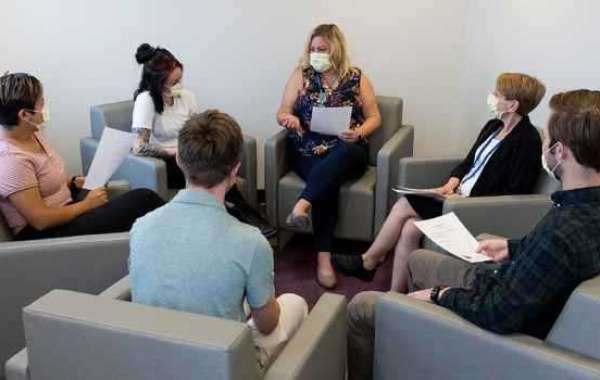Residential Treatment is the highest level of care offered in psychiatric and addiction centers. It involves living full-time at the facility during your recovery and is often recommended for individuals with severe mental health issues or those who have struggled with relapse after trying outpatient care.
In residential treatment, you reside in a controlled and safe environment that’s specifically designed for recovery. Here you’ll be away from triggers and environmental stresses that could cause a relapse back to a previous state of addiction or mental illness.
During your stay, you’ll be provided with 24-hour supervision and care by trained medical professionals. You’ll also receive extensive therapy in a therapeutic setting with counselors, psychologists and psychiatrists. The type of therapy you receive will be based on your specific needs and may include group or individual sessions, family therapy, cognitive behavioral therapy (CBT) and relapse prevention therapy.
There are several different types of residential programs including: group residential communities (sometimes known as “apartment-based residential treatment”), clinical residential programs, farm or work based residential programs and more. Each program is different and offers a unique experience suited to the client’s specific needs.
Residential treatment provides a supportive and healing atmosphere that isn’t available in outpatient treatments or at home. You’ll be able to build beneficial relationships with other clients in your residential program who are experiencing similar things to you. This provides an invaluable support system that can help you through the toughest times in your recovery journey.
Many inpatient programs will also offer specialized therapies such as art, music and exercise. These programs can be extremely effective in helping a client to recover from their emotional and psychological trauma. The residential environment also allows for a flexible schedule so that you can incorporate these therapies into your everyday routine.
One of the most important factors in a successful residential treatment is family involvement. Many inpatient programs will provide family counseling and encourage the participation of the entire family unit in the recovery process. It’s important for families to understand that there are serious issues that need to be addressed when someone is struggling with a mental health disorder.
It’s a common misconception that residential treatment is only used for the most severe and dangerous mental health disorders. In reality, it can be the most appropriate level of care for a wide variety of conditions. Individuals with depression, anxiety, eating disorders and co-occurring drug addictions can benefit greatly from the structure and support that a residential program can provide.







